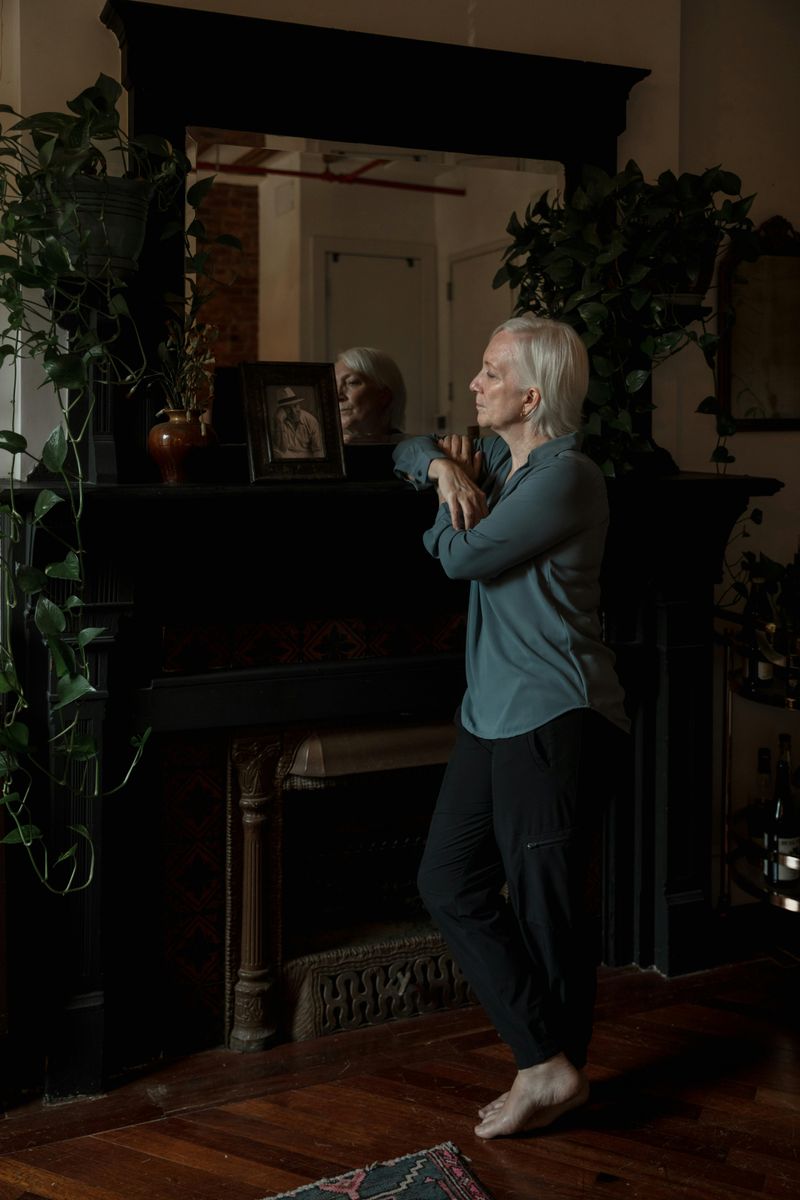A Wife Who’s Fallen Out of Love Will Casually Say These 13 Phrases

Love can be a complex journey, and sometimes the signs of fading affection are hidden in everyday interactions. When a wife begins to emotionally withdraw, it often surfaces through casual phrases that pack a deeper meaning. These expressions, seemingly innocent, are actually signals of a changing emotional landscape. Understanding these subtle hints can be crucial for recognizing shifts in a relationship. Here are 13 phrases that a wife might use when she feels her love diminishing. Each phrase carries its own weight and reveals layers of emotional truth, serving as quiet alarms warning of deeper issues.
1. “I’m just tired.”

Exhaustion isn’t always about lack of sleep. When she says “I’m just tired,” it often reflects emotional weariness. Her days might seem endless, not because of physical demands, but due to the mental burden of unspoken distress.
This phrase can be a quiet cry for understanding, signaling a depletion of emotional reserves. When love starts to fade, the simple act of explaining herself feels like another chore.
The real fatigue is from carrying the weight of unresolved issues, hoping for a change that seems elusive. It’s a subtle indication that her emotional endurance is wearing thin.
2. “It’s fine, don’t worry about it.”

“It’s fine, don’t worry about it” often replaces once-open dialogues with silence. This phrase is not about resolution but resignation. It suggests a dwindling belief in the possibility of change or improvement.
When love fades, this casual statement becomes a barrier to communication. Instead of inviting conversation, it closes the door to mutual understanding.
Her voice might sound calm, yet beneath lies a sea of unexpressed feelings. It’s a clear sign that she’s stepping back, giving up on articulating her needs in the hope of being truly heard.
3. “Do whatever you want.”

“Do whatever you want” might sound liberating but often masks detachment. It’s a signal that she’s relinquishing her role in decision-making, stepping back from emotional engagement.
This phrase marks a shift from collaboration to indifference, where her interest in influencing decisions fades. It’s not about granting freedom but highlighting her withdrawal from shared life moments.
As love diminishes, so does the desire to be involved, crafting an emotional distance that speaks volumes. Her tone may sound permissive, but it reveals a heart quietly disengaging from the partnership.
4. “You wouldn’t understand.”

“You wouldn’t understand” isn’t just frustration; it signifies emotional distance. This phrase shows she doesn’t view her partner as someone who grasps her inner world anymore.
It’s a dangerous disconnect, where the emotional landscape once shared becomes a private domain. In love’s decline, explaining herself seems futile, as the belief in mutual understanding wanes.
This statement, cloaked in exasperation, reveals a deeper truth: the growing gap between them. It’s a cry for empathy masked as irritation, indicating a heart that’s slowly turning away.
5. “I just need some space.”

“I just need some space” can be a healthy request, yet when love fades, it acts as an escape route. She’s creating physical and emotional distance not for rejuvenation, but for relief.
This plea for space signals a craving for solitude rather than reconnection. It’s less about personal reflection and more about stepping away from shared burdens.
The once-welcomed closeness now feels suffocating, and space becomes a sanctuary from unspoken conflicts. Her words may sound calm, but they veil a deeper longing to find peace apart.
6. “You’re overreacting.”

“You’re overreacting” might seem like a call for calm, but it’s a subtle dismissal. It’s a tool to sidestep accountability, disengaging without empathy, showing her heart’s no longer invested.
The emotional intensity once shared now feels burdensome, and this phrase creates a quiet barrier. It’s not about calming disputes but about stepping back from emotional involvement.
Her calm tone masks a deeper truth: the disconnect between them is widening. This phrase reflects a heart that no longer sees value in emotional exchanges, signaling a retreat.
7. “I shouldn’t have to tell you.”

“I shouldn’t have to tell you” reveals a world of unspoken feelings. It signifies a shift from hopeful communication to quiet resentment.
The effort to spark change has dwindled, replaced by the expectation that he “should just know.” It’s about unmet needs, where love’s voice becomes silent.
This phrase marks a turning point: exhaustion from explaining what was once freely shared. Her disappointment isn’t just in unmet expectations but in a connection that’s slipping away. It’s a poignant reminder of the emotional distance that’s silently grown.
8. “I miss how things used to be.”

“I miss how things used to be” is a gentle confession wrapped in nostalgia. It’s not a hopeful statement but a longing for a past where love felt tangible and vibrant.
Her heart revisits memories because the present feels distant and unfamiliar. It’s a soft echo of better times, where love was easy and connections were strong.
This phrase isn’t about rekindling but remembering. It’s a reflection on what’s lost, revealing an emotional landscape that’s more memory than reality. Her voice carries a wistful longing for what once was.
9. “I’m just not in the mood lately.”

“I’m just not in the mood lately” hides layers of unspoken feelings. It’s more than a decline in physical intimacy; it’s about emotional disconnection.
Desire fades as the emotional bond weakens, revealing a deeper absence of connection. Behind this phrase lies a world of unsaid pain and dwindling interest.
Her words mask a significant truth: the heart’s growing distance makes intimacy feel hollow. It’s a quiet cry for understanding, highlighting a need for emotional reconnection beyond physical presence.
10. “You’re being dramatic.”

“You’re being dramatic” subtly shuts down conversation. It’s not a plea for calm but a signal of emotional withdrawal. Her heart, already detached, moves further away with each word.
This phrase distances her from emotional intensity, not out of calmness, but from indifference. It reflects a quiet dismissal rather than engagement.
The once-shared emotional space now feels like an unwanted burden, and this phrase creates an invisible wall. Her seemingly calm demeanor hides a deeper emotional retreat, marking a significant shift in connection.
11. “I don’t want to argue.”

“I don’t want to argue” means different things as love evolves. Initially, it signifies a longing for closeness, but later, it becomes a sign of resignation.
Choosing peace over connection highlights a disengagement. It’s not about resolving conflict but avoiding it, as the effort seems pointless.
Her tone might sound conciliatory, yet it reveals a deeper truth: the emotional investment has waned. It’s a red flag that what once mattered no longer does, signaling a profound shift in priorities.
12. “I’ve just been busy.”

“I’ve just been busy” is more than a scheduling issue. It’s a polite wall, justifying absence both physically and emotionally.
Filling her time with everything but him marks a significant shift. It’s not about a busy life but an intentional distancing.
Her busyness becomes an excuse to evade connections that once were her priority. It highlights a growing disinterest in shared life, crafting a barrier that quietly separates them, day by day.
13. “I don’t know what I want anymore.”

“I don’t know what I want anymore” doesn’t signify confusion but quiet honesty. This phrase marks a profound emotional detachment.
As love fades, clarity becomes elusive, and pretending otherwise seems impossible. It’s a final warning before she leaves mentally or physically.
Her words might sound indecisive, yet they reveal a deep sense of disconnection. This statement signals a heart ready to move on, unable to mask the growing void within.

Comments
Loading…